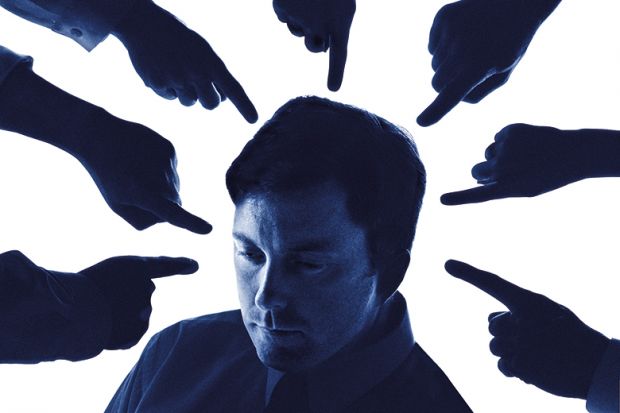Universities’ use of student evaluations leaves them vulnerable to legal action from distressed staff, with executives and governing council members potentially also exposed.
Australian researchers say universities render themselves “liable to legal ramifications” by using information from student evaluations of teaching (SET) – “a data source known to be prejudiced and biased” – to inform hiring, firing, promoting and grant-funding decisions.
Universities could fall foul of anti-discrimination or workplace health and safety legislation, the scholars argue in the journal Assessment & Evaluation in Higher Education. Although aggrieved academics could not sue students over discriminatory comments, they could take action against their employers for allowing the comments to affect their careers, they say.
And universities face arguably more risk from workplace laws that, unlike anti-discrimination legislation, are “enforced by the state”.
Co-author Paul Harpur said anti-discrimination litigation could force academics to endure long legal processes for payouts of just a few thousand dollars. But serious breaches of workplace legislation could see senior university executives and possibly governing council members individually penalised.
That could happen if courts decided that university leaders had not personally taken action to avert harm to staff. “There is a risk – a pretty low risk, but it will be on the risk register of those people,” said Dr Harpur, a disability rights expert at the University of Queensland Law School. “Everyone I’ve spoken to is paying attention to it.”
He said the risk had increased since he and co-author Troy Heffernan wrote the paper, because of new “psychosocial” clauses in workplace safety legislation. The provisions oblige employers to manage the risks posed by “psychosocial hazards” – including workplace management, environment and interactions – to the mental health of workers.
The provisions were added to Australia’s model workplace health and safety laws in April and are being adopted by the states and territories. Every jurisdiction except Victoria has signed up to the model laws. The paper says overseas universities have similar obligations because other countries’ legislation is often similar or stronger.
“There is a much greater obligation now than there has been previously to protect the mental health of staff,” Dr Harpur said.
The paper cites evidence that mounting prejudice and abuse in student evaluations is disproportionately affecting some university workers’ mental health. It says: “For at least 25 years research has shown that academics from groups marginalised by gender, sexual identity, race, language background or…disability are likely to be severely disadvantaged in SET data. Harm does occur and…is impacting significant numbers of academics.”
Dr Harpur said that, at a minimum, universities needed systems capable of assessing and – where appropriate – expunging negative commentary. Institutions should also have support mechanisms ready for the academics most likely to be upset by critical commentary, such as first-time teachers.
“It is complex, but our workforces are complex,” Dr Harpur said.
POSTSCRIPT:
Print headline: Evaluations ‘a prosecution risk’
Register to continue
Why register?
- Registration is free and only takes a moment
- Once registered, you can read 3 articles a month
- Sign up for our newsletter
Subscribe
Or subscribe for unlimited access to:
- Unlimited access to news, views, insights & reviews
- Digital editions
- Digital access to THE’s university and college rankings analysis
Already registered or a current subscriber? Login










